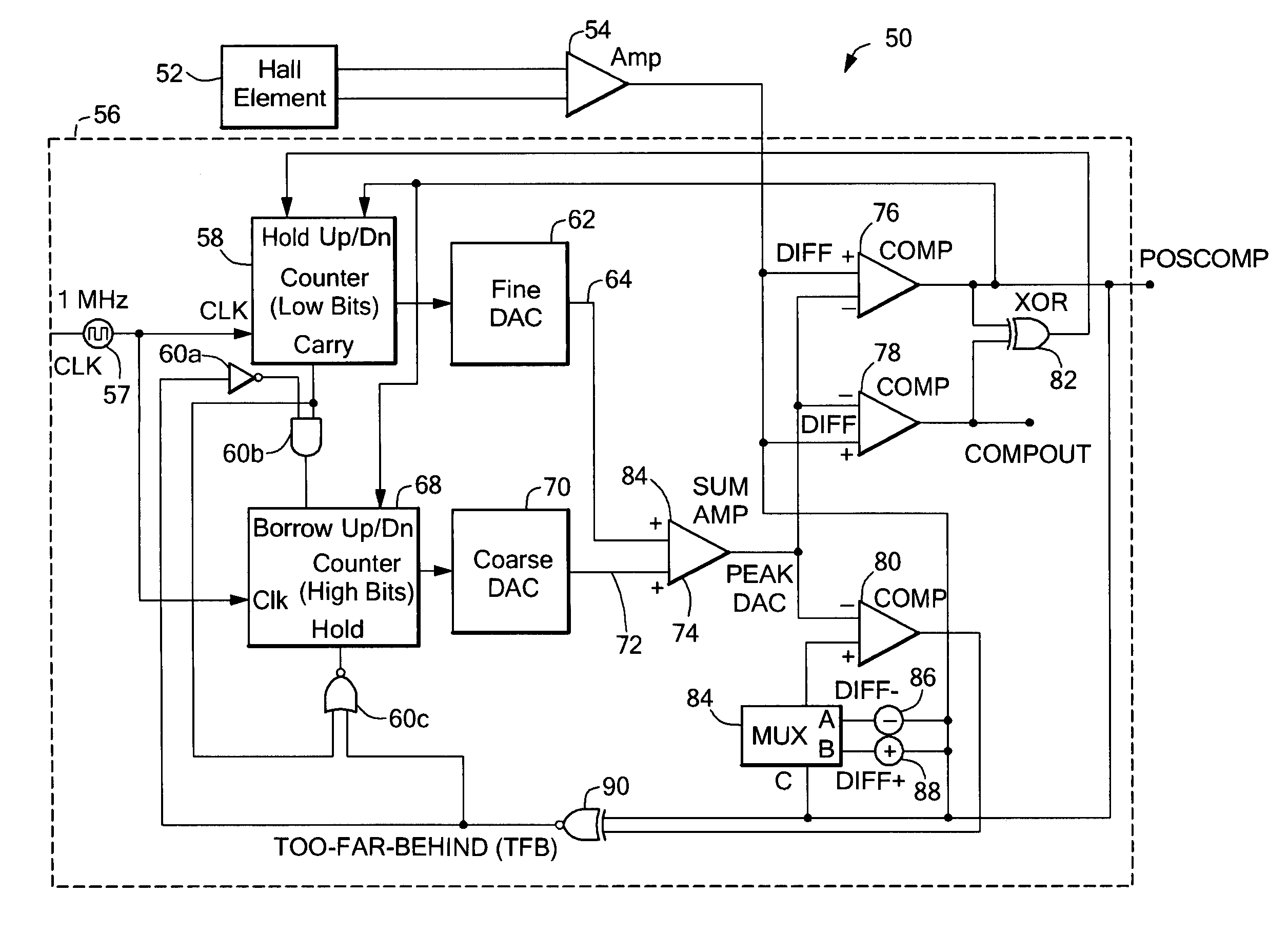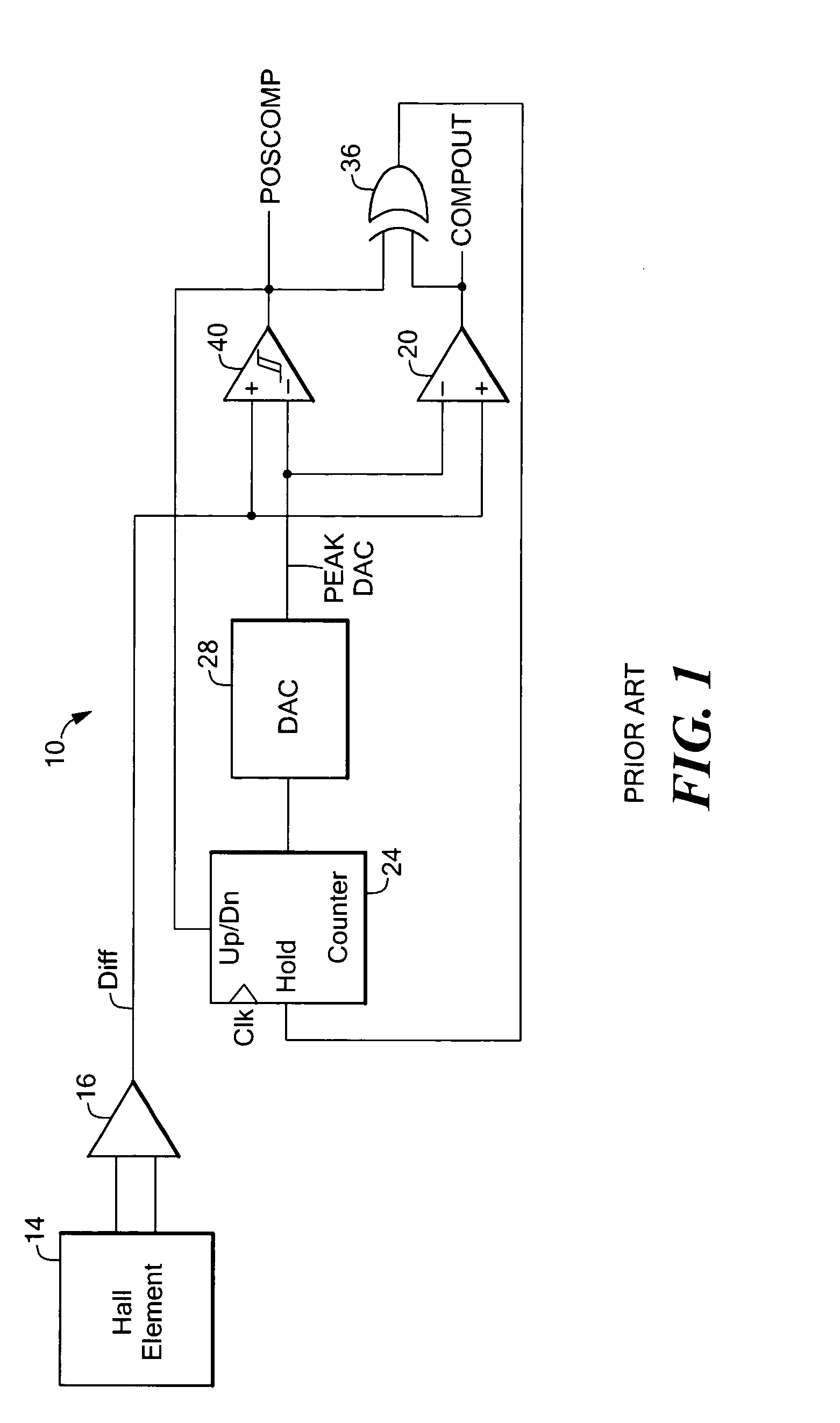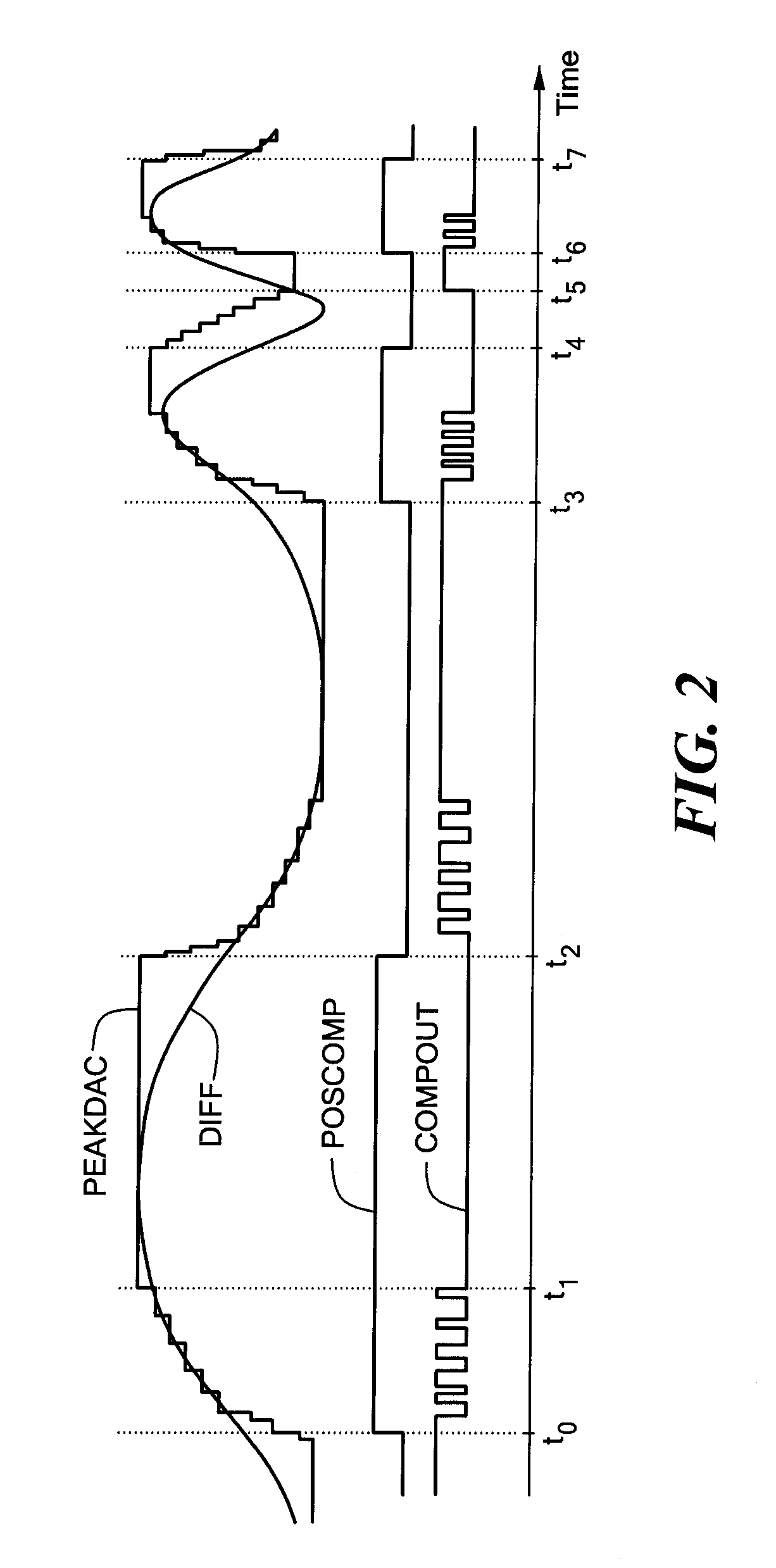Proximity detector
a detector and proximity technology, applied in the field of proximity detectors, can solve the problems of reducing the accuracy of the proximity detector, the potential problem of skipping poscomp signal transitions can occur, so as to achieve accurate tracking and reduce signal edge jitter
- Summary
- Abstract
- Description
- Claims
- Application Information
AI Technical Summary
Benefits of technology
Problems solved by technology
Method used
Image
Examples
Embodiment Construction
[0025]Referring to FIG. 3, a proximity detector 50 includes a magnetic-field-to-voltage transducer 52 coupled to an amplifier 54, for providing a magnetic field signal, DIFF, indicative of an ambient magnetic field. In one particular embodiment, the magnetic field transducer 52 is a Hall effect element. However, other types of magnetic field transducers can be used with this invention, including but not limited to a magnetoresistive device. The proximity detector 50 also includes a peak detector circuit 56 having a first counter 58 and a fine DAC 62 for providing a first output signal 64 having a first step size, and a second counter 68 and a coarse DAC 70 for providing a second output signal 72 having a second step size larger than the first step size. The peak detector circuit 56 also includes a summation circuit 74 for providing a tracking signal, PEAKDAC, as a sum of the first and second output signals 64, 72, respectively.
[0026]The DIFF signal is coupled to a non-inverting inpu...
PUM
 Login to View More
Login to View More Abstract
Description
Claims
Application Information
 Login to View More
Login to View More - R&D
- Intellectual Property
- Life Sciences
- Materials
- Tech Scout
- Unparalleled Data Quality
- Higher Quality Content
- 60% Fewer Hallucinations
Browse by: Latest US Patents, China's latest patents, Technical Efficacy Thesaurus, Application Domain, Technology Topic, Popular Technical Reports.
© 2025 PatSnap. All rights reserved.Legal|Privacy policy|Modern Slavery Act Transparency Statement|Sitemap|About US| Contact US: help@patsnap.com



